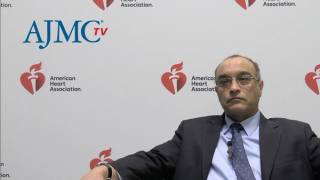
Health Care Delivery
Latest News

Latest Videos

Podcasts
CME Content
More News

Advanced practice clinicians (APCs) experience significant turnover, highlighting challenges in retention and hiring.

To mark the 30th anniversary of The American Journal of Managed Care (AJMC), each issue in 2025 includes reflections from a thought leader on what has changed over the past 3 decades and what’s next for managed care. The May issue features a conversation with John Michael O’Brien, PharmD, MPH, a member of AJMC’s editorial board and the president and CEO of the National Pharmaceutical Council. This interview has been lightly edited for clarity.

Higher social capital is associated with fewer treatment delays among cervical cancer survivors, with notable racial disparities in reported social capital levels and access to timely care.

Higher health care needs, more financial barriers, and negative health care experiences defined the experiences of LGBTQ+ individuals in the year after giving birth.

To better treat adolescent and young adult (AYA) patients with various subtypes of Hodgkin and non-Hodgkin lymphomas (NHL), Andrew Evens, DO, speaks to the importance of primary care, screening access, and research.

Experts at the Community Oncology Conference discuss innovative patient navigation programs, emphasizing technology's role and the importance of human connection in cancer care.

Experts champion medically integrated care and oncology optimized distribution models as vital strategies to improve outcomes, streamline access, and reduce costs for patients.

Because clinical trials do not mimic the real-world application of multiple myeloma treatments, Ajai Chari, MD, discussed the variety of patient factors clinicians should consider in their practice.

Approximately 1 million Aetna members will need new coverage with the announcement that CVS will be leaving the Affordable Care Act (ACA) individual exchange business next year.

Experts emphasize the need for enhanced clinical trial infrastructure in community oncology to ensure equitable access to innovative therapies for all patients.

Oncology leaders from Alliance Cancer Specialists, American Oncology Network, CHI St. Vincent, Memorial Sloan Kettering Cancer Center, and New York Cancer & Blood Specialists discussed the power of collaboration in cancer care, highlighting partnerships that enhance patient outcomes and resource sharing in community practices.

Jon Giles, MD, speaks to the power of personalized medicine and multidisciplinary care to enhance treatment for patients with rheumatoid arthritis (RA).

Significant unmet needs were found among high-quality validation studies on the internal structure of patient-reported outcome measures (PROMs) specific to alopecia areata (AA), a common hair loss condition with substantial quality of life impacts.

A new survey highlights how the mental toll of loneliness trickles down to have very real physical consequences for patients with chronic illness.

Raymond Osarogiagbon, MD, discusses the challenges of implementing lung cancer screening guidelines and the need for increased awareness and access.

Smoking prevalence is projected to decline by 2035, yet health consequences persist due to slower reductions among older adults.

When it comes to treating multiple myeloma (MM), Ajai Chari, MD, argued that more is not always better. More intense treatment regimens, or those with more drugs, don't necessarily guarantee better outcomes.

The Trump administration is proceeding with probes into the national security implications of pharmaceutical imports.

Richard J. Nowak, MD, MS, Yale School of Medicine, explains what some early myasthenia gravis symptoms are and their impact on research efforts.

The continued success of abelacimab throughout the AZALEA-TIMI 71 trials helps draw the drug closer to FDA approval, stated Sid Patel, MD.

The future of treating metabolic dysfunction–associated steatohepatitis (MASH) looks brighter than ever, says Naim Alkhouri, MD, as data emerges on newly developed interventions.

Asembia's AXS25 Summit will unite more than 8000 key decision-makers to explore pharmacy innovation, artificial intelligence, policy, and patient care from April 27 to May 1 at Wynn & Encore in Las Vegas, Nevada.

Emergency departments (ED) struggle to screen for social determinants of health, inhibiting quality care and impacting health disparities among vulnerable populations.

For patients with complex needs and social challenges like unstable housing, the hospital has become their de facto medical home—yet each visit is a fragmented restart, without continuity, context, or a clear path forward.

"Value" in oncology should measure far more than clinical outcomes, stated Andrew Chapman, DO, as he argued how rethinking "value" could not only enhance patient care but also drive down costs.



















